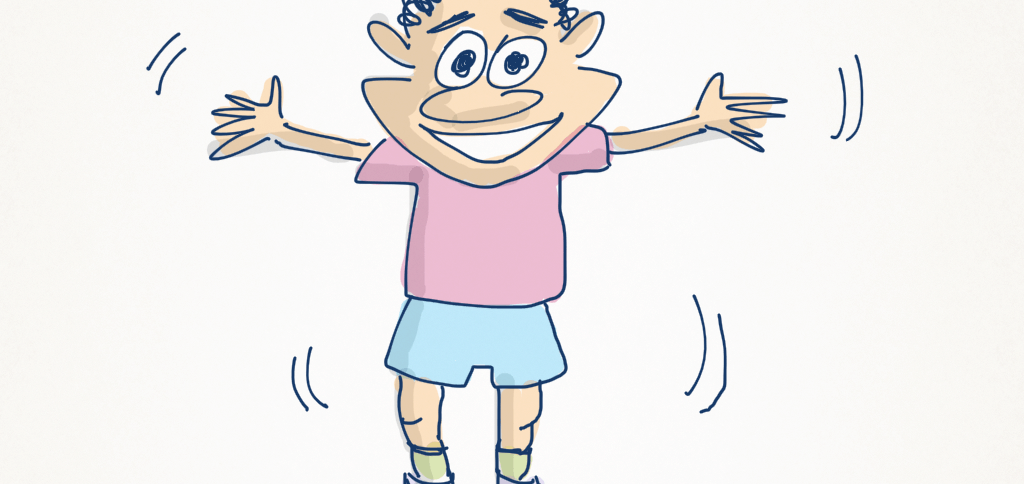In the animated video we created for the launch of this website, I dissected the term “user experience.” It’s a catch-all phrase that pulls together the diverse activities associated with user-centred design. However, the notion that an abstract umbrella term is what unites the UX community, in fact, a cop-out. Sure, it’s a convenient phrase for grouping a collection of semi-related skills, but there’s more to it than that.
UX designers are a unique bunch, but not just because of the job title we choose.
Last year I attended several UX Melbourne meetups. Despite the fact that there are always plenty of new faces, and folks from different backgrounds with different skillsets, I always feel like I’m surrounded by friends and like-minded souls. Conversations happen easily at these events, and attendees are generous with sharing knowledge, connections, and advice. There’s only one explanation for this—a single common trait that binds us:
Empathy.
Great UXers are great at empathising with other people. The ability to put yourself into another person’s shoes; to see the world from their point of view is, in my opinion, the single, most valuable skill for UX designers to develop. Empathy differs from sympathy, which occurs when you acknowledge another person’s feelings, but don’t necessarily share them. You don’t need to agree with or accept someone’s opinion to empathise with them, but you do need to be able to understand the emotions they are feeling, internalise them to the point that, to a certain degree, you share them—at least sufficiently so that you’re able to factor them into your decisions, processes, and communications.
Here are some reasons why I believe empathy makes us better designers:
- Empathising with users leads to a genuine understanding of how to solve their problem. This is kind of obvious, but it’s reinforced by the fact that a lack of empathy is a common trait for those with autistic spectral disorders or, in more extreme cases, psychopathic tendencies. A higher degree empathy equates to a higher emotional intelligence and teaches you to care. Users can tell when your product has been built with love.
- Empathy can aid social situations. Being able to appreciate the point of view in a conversation instantly gives you some common ground from which to move forward—whether that’s with a user, a stakeholder, or a team member.
- Empathy can help with other communications. For example, being able to pre-empt questions at the end of a presentation, or identify assumptions and head them off early in a negotiation. (Check out Roman Krznaric’s presentation, Six Habits of Highly Empathic People)
- Empathy builds relationships. A continued set of interactions with people based on empathy will result in increased trust, openness, and a more constructive, higher performing team that is devoid of hidden agendas.
- Empathy shapes you as a person. Empathy isn’t a strictly professional skill, like learning how to drive a new wireframing tool or facilitate a workshop. It’s impossible to develop empathy during a work environment and then switch it off in your personal life. All of the professional benefits that come from practicing increased empathy at the office will spill over into a richer, more satisfying personal life—a bold statement that I don’t have any research to support, but it makes sense to me!
One of my favourite UX bloggers, Whitney Hess, mentions in her bio that “she believes empathy builds empires.” While it’s certainly true that fear, slavery, greed and other philosophies have also been instrumental in building empires, I know which empire I’d back to last the distance.
I’d love to hear your thoughts on this. Does empathy come naturally to you? Do you consciously work at becoming more empathic? If so, how?






For me it’s naturally. I can’t imagine my life without this characteristic. You make me so curious: how can you improve your empathy?! I want to know, too. I didn’t think that you can improve such a feature until now.
Hi Ligia. Great question. I’m actually working on a post on how we can learn to be more empathic. There has been years of research done in this space for helping kids with autistic spectral disorder, for instance, and there’s a lot we can learn from that. Stay tuned.
Great post. My empathy comes naturally. I have actually had to work at managing it rather than increasing it. I am really intrigued by the idea that it is an asset in UX. Sounds like it could be a good place for me!
Absolutely Kristen, it could be your competitive edge! If it comes naturally to you then you should definitely harness the ability to put yourself in your users’ shoes.
I plan on writing more on this topic, so watch this space.
“Empathy differs from sympathy, which occurs when you genuinely share another person’s feelings.”
Actually the opposite is true. Empathy is much more personal. Sympathy is more detached.
The rest is spot-on though. Great article.
Interesting Lisa. Now that you mention it, I do agree with you. I might update the post to rephrase it a little. What are your thoughts on these examples? Perhaps a good way to describe the difference is that empathy is like sympathy on steroids? :)
Updated the post to clarify my thoughts on the difference between empathy and sympathy. Thanks Lisa!
Empathy comes to me naturally. I have always been applying it in many situations in my life – unknowingly. Now I get it. The fact that it’s an asset in UX is another jackpot for me – considering I’m just a beginner in the UX space!